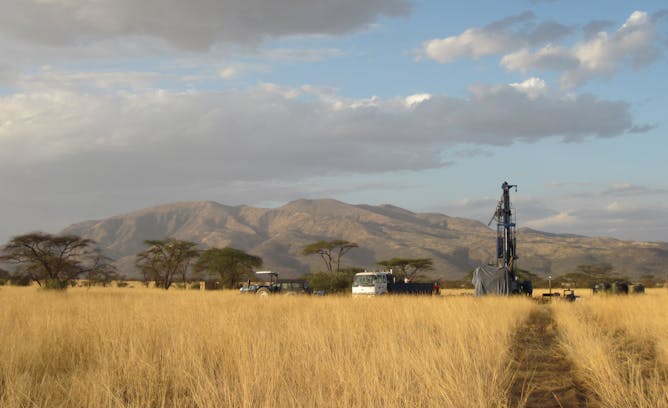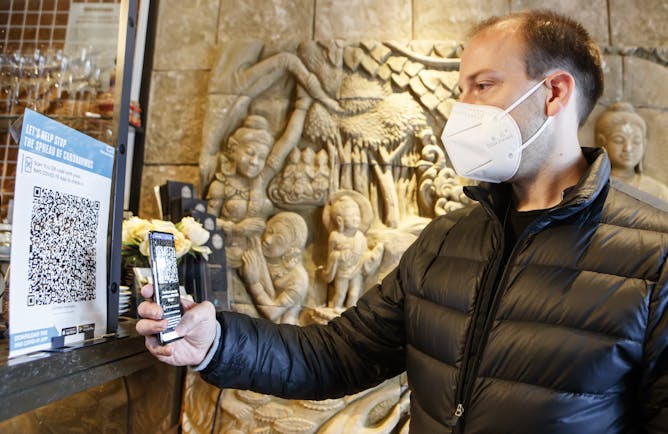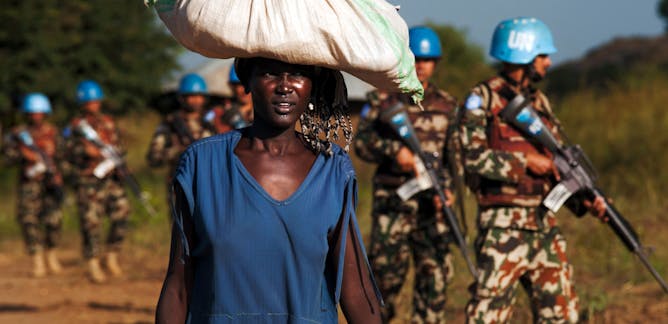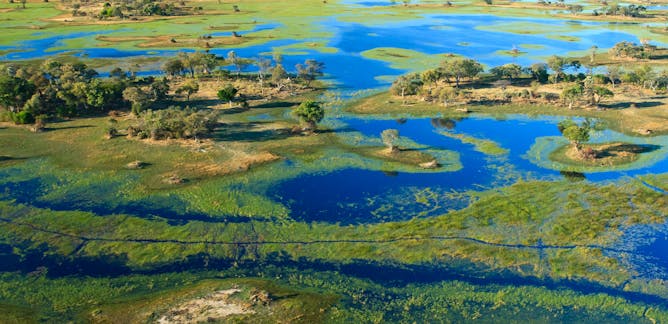|
Anthropologists have long known that environmental conditions influenced the evolution of our Homo sapiens ancestors. But there have been gaps in our understanding because certain periods have a sparse archaeological and fossil record. A new study describes a research project in the Rift Valley of Africa that drilled a 450-foot-deep sediment core to get a picture of the environmental factors that influenced how people lived and evolved
during a period starting 500,000 years ago.
Have you downloaded a contact tracing app? If not, you’re in a huge majority. Most countries that have launched apps to alert users when they’ve come into contact with someone infected with COVID-19 have failed to get more than 20% of their populations to install the software. That’s a long way from the estimated 56% that a report published back during the first wave of COVID-19 said would help bring the pandemic to an end. It’s too early to say that contact tracing apps won’t work but based on what we know about how their design, their popularity and how people respond to instructions to self-isolate, the signs aren’t looking good.
Tomorrow the United Nations will mark its 75th anniversary. From small beginnings the world body has grown into an organisation that currently deploys 95,000 peacekeepers to 13 missions around the world. But how effective are these? In an article published earlier this year Charles T. Hunt argues that there should be a review of the way in which peacekeeping missions are evaluated. And in an article co-authored with Adam Day they argue that missions should be more orientated to the socio-economic drivers of today’s conflicts.
|

Drilling 139 meters down to volcanic rock provided scientists with a million-year environmental record.
Human Origins Program, Smithsonian
Richard Potts, Smithsonian Institution
A new environmental record for a prehistoric site in Kenya helped researchers figure out how external conditions influenced which of our ancient ancestors lived there, with what way of life.
|

Checking in.
Danny Lawson/PA Wire/PA Images
Allison Gardner, Keele University
Download rates have been disappointing and people aren't following self-isolation warnings.
|
Politics + Society
|

Charles T. Hunt, RMIT University
The UN missions deployed around the world to manage conflict and protect civilians need to be assessed in a manner that accurately reflects their successes and failures.
| |

Charles T. Hunt, RMIT University; Adam Day, United Nations University
United Nations peacekeeping operations need to be refashioned to meet the needs of an ever evolving world.
|
|
|
Energy + Environment
|

Surina Esterhuyse, University of the Free State
Fracking in Botswana could have an impact not only the country's groundwater, but also that of Namibia and South Africa.
| |

Scott Archer-Nicholls, University of Cambridge; James Weber, University of Cambridge
Some atmospheric pollutants actually help cool the planet, but the sudden shutdown of heavy industry threatened to purge them.
|
|
|